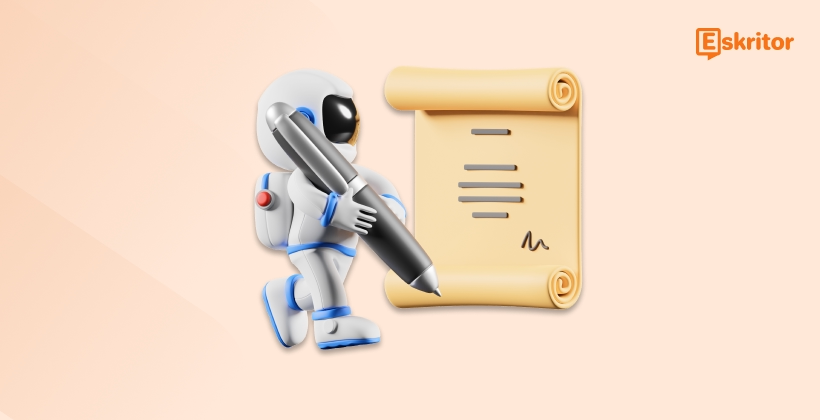How AI Writers Are Transforming Content Creation
How AI Writers Are Transforming Content Creation
Blog Article
How AI Writers Are Transforming Content Creation
As synthetic intelligence (AI) evolves, it remains to revolutionize exactly how we approach contemporary modifying practices. From syntax modification resources to advanced content generation systems, AI writer is reshaping just how authors, editors, and designers refine their work. That blog considers the position AI represents in contemporary editing and the affect it's across industries.

AI-Powered Tools Primary the Cost
AI-powered methods have grown to be an vital part of editing workflows. Pc software fueled by organic language processing (NLP) and unit understanding is able to do tasks like syntax checks, stylistic ideas, and word restructuring with unbelievable speed and accuracy.
As an example, AI-based syntax pieces can recognize mistakes that the human eye may possibly neglect, such as for example subject-verb contract dilemmas or lost modifiers. Likewise, fashion innovations produced by AI make certain that tone and movement arrange with the intended audience, which can be priceless for professional editors.
These instruments are not only limited by standard grammar corrections. They are capable of improving readability, transforming passive style to effective voice, and even paraphrasing entire paragraphs without changing the meaning.
Performance Matches Time Savings
Studies reveal that the use of AI instruments may lower editing time by as much as 30%. In place of poring over every sentence manually, authors may emphasis their attempts on innovative and strategic components of content. That shift enables professionals to handle higher sizes of text in shorter intervals, which is especially useful for industries like writing and digital marketing.
Furthermore, predictive AI features may highlight repeating mistakes, supporting authors improve their abilities over time. For organizations, that means fewer resources allocated to changes and more refined outputs from the comfort of the start.
Improving Convenience and Globalization
AI's position in modern editing runs beyond efficiency. Advanced interpretation and localization tools let builders to adjust material seamlessly for global readers, wearing down language barriers with precision. That technology ensures that the exact same information can resonate with cultures global while keeping their authenticity.
AI also raises inclusivity requirements by improving accessibility in content. For instance, formulas can recognize perhaps non-inclusive language and suggest alternatives. That ability enables authors to refine publishing so that it resonates with diverse audiences.

Striking a Stability Between AI and Human Creativity
While AI excels in pace and accuracy, it generally does not change human editors. Products frequently absence the ability to understand nuance, sensation, or social situation fully. The perfect program includes AI's effectiveness with individual creativity and information, leading to really outstanding work.
By leveraging these technologies in modern modifying practices, builders and writers equally may make high-quality content that aligns with the fast-paced needs of today's digital world. AI could be the future of editing, but the human touch will be required for storytelling and connection. Report this page